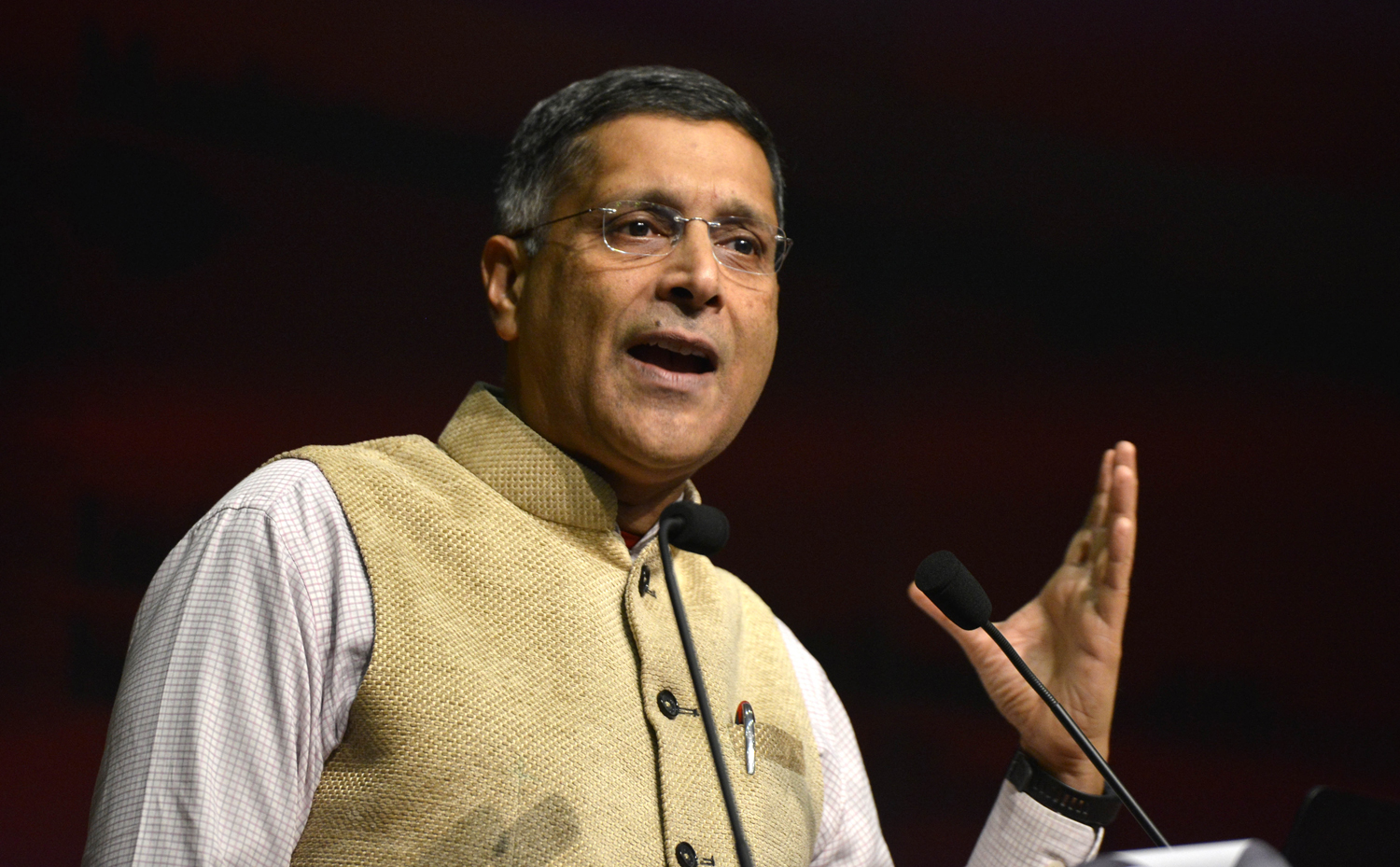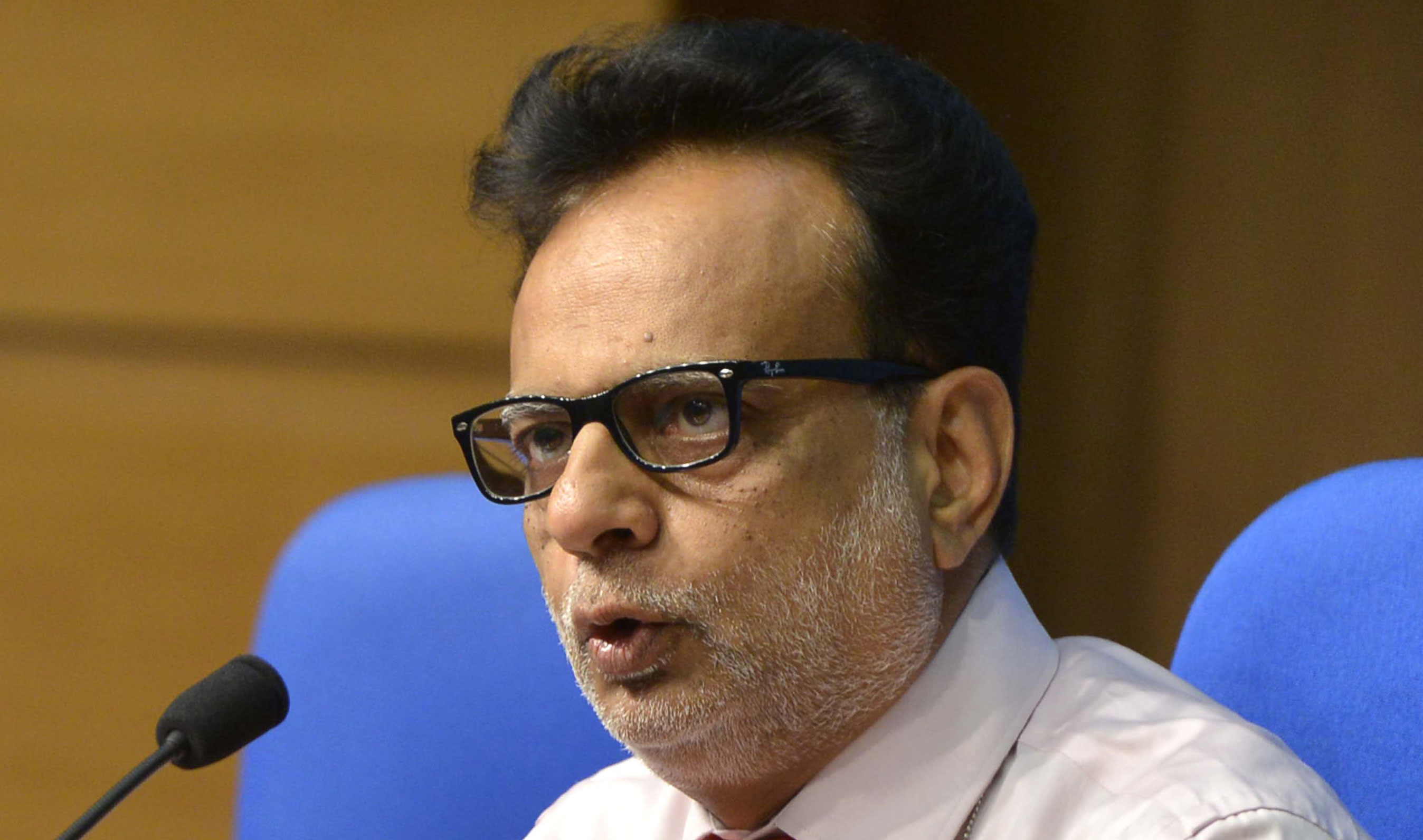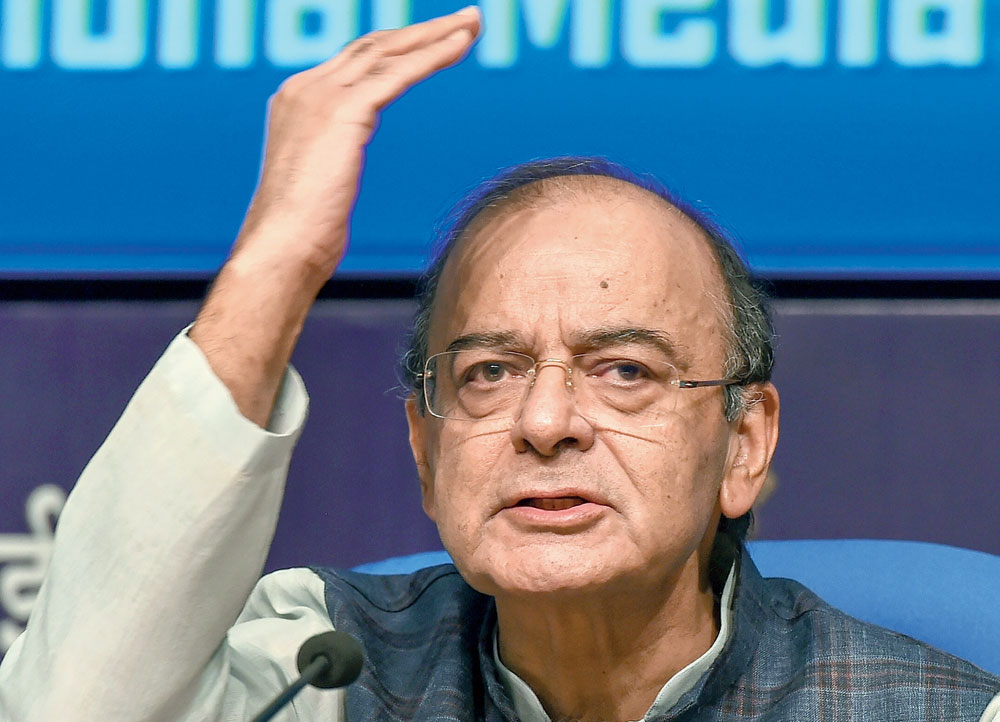The weaponisation of economics can cut both ways, the Narendra Modi government has learnt in a matter of hours after preening itself for “busting” the growth story of the Manmohan Singh decade.
The mood-buster was fired from near-within, so to speak, with the Modi government’s own erstwhile chief economic adviser, Arvind Subramanian, describing demonetisation as “a massive, draconian, monetary shock” that accelerated the downswing.
Subramanian, promoting his upcoming book Of Counsel: The Challenges of the Modi-Jaitley Economy, had tweeted on Wednesday that the contents include GST and demonetisation among other topics. “This thread might pique your interest (& open your wallet),” he said in a jovial note.
The tweets did pique the interest of the Opposition, including the Congress that was seething at the government figures that had a few hours earlier pulled the growth rates of the UPA years below that of the Modi years. Several parties pored over advance excerpts of the book and struck pay dirt.
Although Subramanian, now part of the visiting faculty at Harvard and a non-resident senior fellow at the Peterson Institute for International Economics, had nuanced his observations in the book, what drew the maximum attention were words like “draconian” and “massive”.
In the introduction to the book, Subramanian has taken a balanced view: “Honesty on the part of demonetisation’s apologists demands that they confront its significant costs. Equally, honesty on the part of its critics demands that they understand why it turned out to be politically advantageous (first puzzle); and honesty on the part of analytical economists demands that they understand why its economic costs proved much lower than expected (second puzzle).”
But he did write elsewhere in the book that demonetisation “was a massive, draconian, monetary shock: in one fell swoop 86 per cent of the currency in circulation was withdrawn…. Growth had been slowing even before, but after demonetisation, the slide accelerated. In the six quarters before demonetisation, growth averaged 8 per cent and in the seven quarters after, it averaged about 6.8 per cent (with a four-quarter window, the relevant numbers are 8.1 per cent before and 6.2 per cent after)”.
On the goods and services tax (GST), the Opposition found ammunition in Subramanian’s prose.
“I wonder also whether the implementation of GST was handicapped by being the second shock that had to be imposed on the system, especially on small traders in the informal sector. To be sure, implementation could have been significantly better but the GST’s public reception was surely contaminated by demonetisation having preceded it,” the economist wrote.
Subramanian, who had abruptly announced his resignation as the chief economic adviser in June and ended his innings a month later, has included several nuances typical of punctilious academics but they need not make his observations any less unpalatable to the Modi government.
In fact, the comments in the book are a dramatic departure from the circumspection he displayed a few months ago while he was still on the government’s assignment.
During his media conference in June, Subramanian had sidestepped a loaded question on demonetisation — a policy that North Block insiders say that neither he nor his boss Arun Jaitley ever whole-heartedly supported.
In an interview to the London-based Financial Times last year, Subramanian had said he had learnt to watch his step on delicate topics that could upset the government. In the book, Subramanian appeared to have taken some bolder strides.
Congress leader Rahul Gandhi was quick on the draw. “Demo like Rafale was a crime against India & a huge scam. Parrikar distanced himself from Rafale to save his skin. Mr Subramanian is doing the same with Demo. I wonder why he didn’t resign when he disagreed so much? Don’t worry India, the guilty will be investigated and punished,” Rahul tweeted on Thursday.
The Trinamul Congress saw a “Didi-told-you-so” moment. The Congress too pitched Rahul as the original oracle.
Congress social media head Divya Spandana tweeted: “Never too late, but remember @RahulGandhi said it first and everybody and their uncle chose not to hear. #DemonetisationDisaster’’
Trinamul pulled out chief minister Mamata Banerjee’s November 8, 2016, tweet that said “Withdraw this Draconian Decision”. The party added: “Didi Told You So.”
Labouring the point, the Trinamul further said: “History. On record. She led. Others followed.”
CPM’s Sitaram Yechury said: “Demonetisation was an unmitigated disaster and Modi's mishandling and destruction of Indian economy has only unleashed misery and hardships for the people, especially farmers, workers and the poor.’’
Samajwadi Party’s s national spokesman Ghanshyam Tiwari sought to give a Potteresque spin to what the Opposition calls “voodoo economics”.
Commenting on the new GDP series announced by the Central Statistics Office along with Niti Aayog, and Subramanian’s remarks on demonetisation, Tiwari said: “NetaAyog @NITIAyog continuously defends Harry Potter Economics of Demonetisation with full dishonesty.
“Furious with ex-CEA, BJP may now make Bajrangi Adityanath ji next Chief Economic Adviser to help the Father of Demonetisation fight against common sense & truth.”













